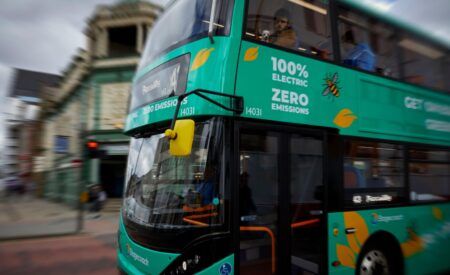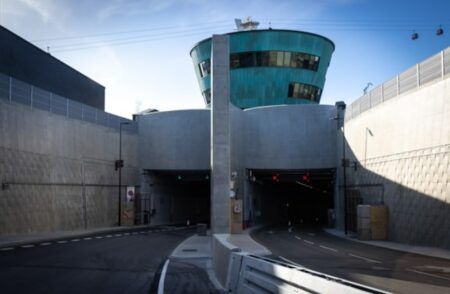Transport for London (TfL) has launched a public consultation on measures to reduce traffic and improve air quality in Central London through changes on the exemptions and discounts available to vehicles entering the city’s Congestion Charge Zone.
TfL’s new proposals would remove the exemption of private hire vehicles (PHVs) or ‘minicabs’ from the Congestion Charge, and introduce a new Cleaner Vehicle Discount to replace the Ultra-Low Emission Discount.
It is proposed that these changes would take effect on April 2019, and by ensuring that the emission standard for those receiving a full discount are tighter than the Ultra-Low Emission Zone (ULEZ), they would help to further drive demand for the greenest vehicles.
TfL notes that since the Congestion Charge launched in 2003, the number of vehicles entering the zone every day has decreased by around 30%. However, over the same period, the number of different PHVs entering the zone in charging hours has gone from an expected 4,000 a day to more than 18,000, with a knock-on effect on air pollution and congestion in Central London.
Analysis carried out for TfL indicates that the removal of the PHV Congestion Charge exemption could reduce the number of individual PHVs entering Central London by up to 45%. Removing these vehicles, which often repeatedly circulate within the zone, could reduce congestion and improve journey times for bus passengers, while reducing emissions. It is proposed that the exemption would remain for wheelchair accessible PHVs, to support TfL’s commitment to make the capital an accessible city for all.
The current Ultra Low Emission Discount applies to cars or vans that meet the Euro 5 standard for air quality, as well as emitting 75g/km or less of CO₂. The first phase of changes proposed would mean only zero emission capable vehicles will not have to pay the Congestion Charge on environmental grounds. It is expected that, if the changes are made, around 10% of the vehicles currently eligible will no longer receive a discount. There will a further tightening of the Cleaner Vehicle Discount in October 2021, with only pure electric vehicles qualifying.
Two reports were conducted into the potential impact of the proposed changes:
• An Integrated Impact Assessment, carried out by consultants Mott MacDonald, which considers the likely health, equality, economic and business and environmental impacts of TfL’s proposals;
• A study by Cambridge Economic Policy Associates (CEPA) into the impact of the proposed PHV exemption removal on the private hire industry in London.
“If we are to clean up the capital’s toxic air and tackle congestion in Central London, we need to have the appropriate incentives, as well as the right interventions,” explained Alex Williams, TfL’s director of city planning.
“The Congestion Charge has had a real impact on improving London’s roads for all since it launched 15 years ago. However, over that time the availability and standard of low-emission vehicles has greatly advanced, and the number of private hire vehicles entering the zone during charging hours has rocketed. It is only right that we keep the discounts and exemptions for the scheme under review to make sure it continues to be effective.”




